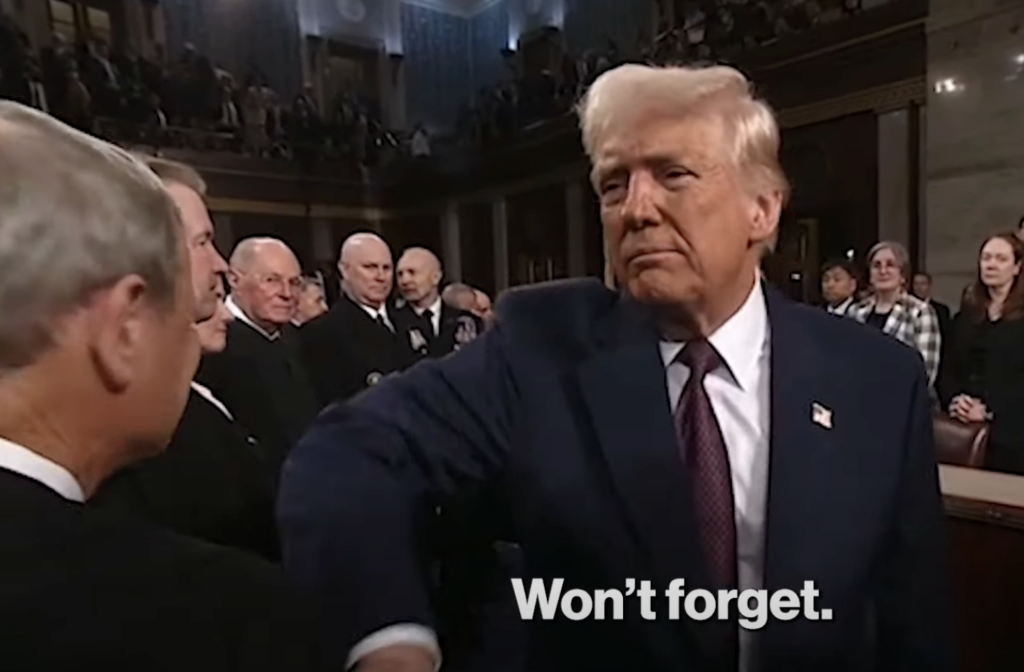The Roberts Court is Trump’s personal Star Chamber

The data is striking:
The Supreme Court is now in open conflict with the lower courts over cases involving the Trump administration. Since May, federal district courts have ruled against the administration 94.3% of the time. The Supreme Court, however, has flipped that outcome, siding with the administration in 93.7% of its cases (15 out of 16).
District court judges, who see the evidence firsthand and hear directly from those affected, overwhelmingly find the administration’s actions unlawful. Circuit courts split more evenly but still lean against the administration. Then the Supreme Court—furthest from facts, closest to power—reverses almost automatically.
The federal judiciary’s multiple levels were designed to handle different types of cases and create orderly paths for appeal, with the Supreme Court as the final arbiter. But that system assumes good faith—that the highest court will exercise its power judiciously, reversing lower courts when they’ve erred, not simply when they rule against executive power.
In National TPS Alliance v. Noem, a district court blocked the administration from terminating Temporary Protected Status for Venezuelan nationals, but the Supreme Court intervened to grant the government a stay, allowing the terminations to proceed. In J.G.G. v. Trump, after a district court issued a temporary restraining order to stop the summary removal of Venezuelans under the Alien Enemies Act, the Supreme Court again stepped in, vacating the lower court’s order.
The Supreme Court’s intervention in D.V.D. v. DHS exemplifies this pattern. Judge Brian E. Murphy confronted devastating evidence: DHS was deporting people to third countries with hours or minutes of notice, making it impossible to find lawyers or assert claims of persecution. Murphy crafted a narrow remedy—simply requiring advance written notice before deportation. The Supreme Court killed it with an unsigned midnight order, no explanation given. But the message–even left unsaid—was clear.
Federal judges now face coordinated assault from two directions. From the outside, the Trump administration treats court orders as suggestions while targeting judges personally. The president brands them “USA HATING JUDGES” and “MONSTERS.” His allies amplify these attacks into doxxing campaigns, death threats, and impeachment resolutions. From above, the Supreme Court systematically undermines their authority through these emergency reversals. As Justice Sotomayor has pointed out, the government is no longer required to prove its case to win these emergency requests. The Court isn’t correcting clear legal errors; it appears to be punishing lower courts for the act of constraining executive power.
Despite all the protesting-too-much from the Republican majority, this is precisely why the abuse of the shadow docket is so inconsistent with the rule of law in this context. Careful rulings protective of fundamental rights are being casually thrown out with not only no justification for how the balance of equities could favor the government so heavily as to justify an emergency stay but generally no reasoning at all. “Trump wins” is the only rule.
The next step is brutally logical:
Emboldened by the Supreme Court, the administration’s response was swift and unprecedented. On June 24, 2025—just one day after the Supreme Court’s order in D.V.D.—the Department of Justice sued the entire 15-judge bench of the U.S. District Court for the District of Maryland. Their supposed offense? Issuing a standing order that briefly pauses deportations for 48 hours to ensure a detainee’s last-minute appeal can actually be heard by a judge. This order came after the Maryland judges had watched DHS conduct midnight deportations while cases were pending, making judicial review impossible.
The DOJ’s lawsuit crosses a line that has stood for centuries. Federal judges have historically enjoyed absolute immunity from lawsuits over their judicial acts—a protection the government has always respected, until now. Most stunning is the DOJ’s core claim: that the mere act of pausing a deportation for 48 hours to allow for judicial review inflicts irreparable harm on the government. The administration is arguing that it is being injured by the very existence of judicial oversight.
The Supreme Court is already at war with the non-hardcore-MAGA parts of the federal judiciary; this is just the next step from the administration.
